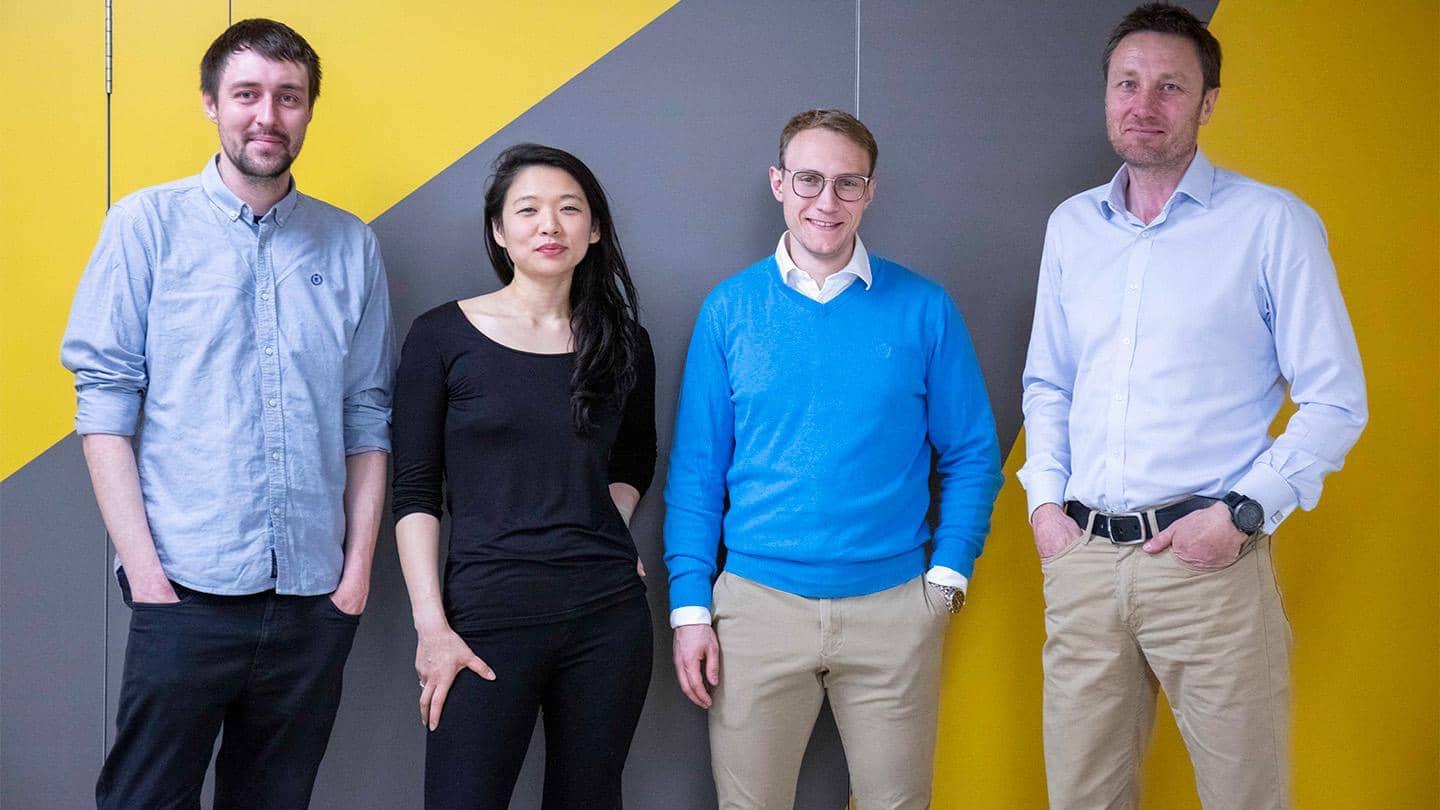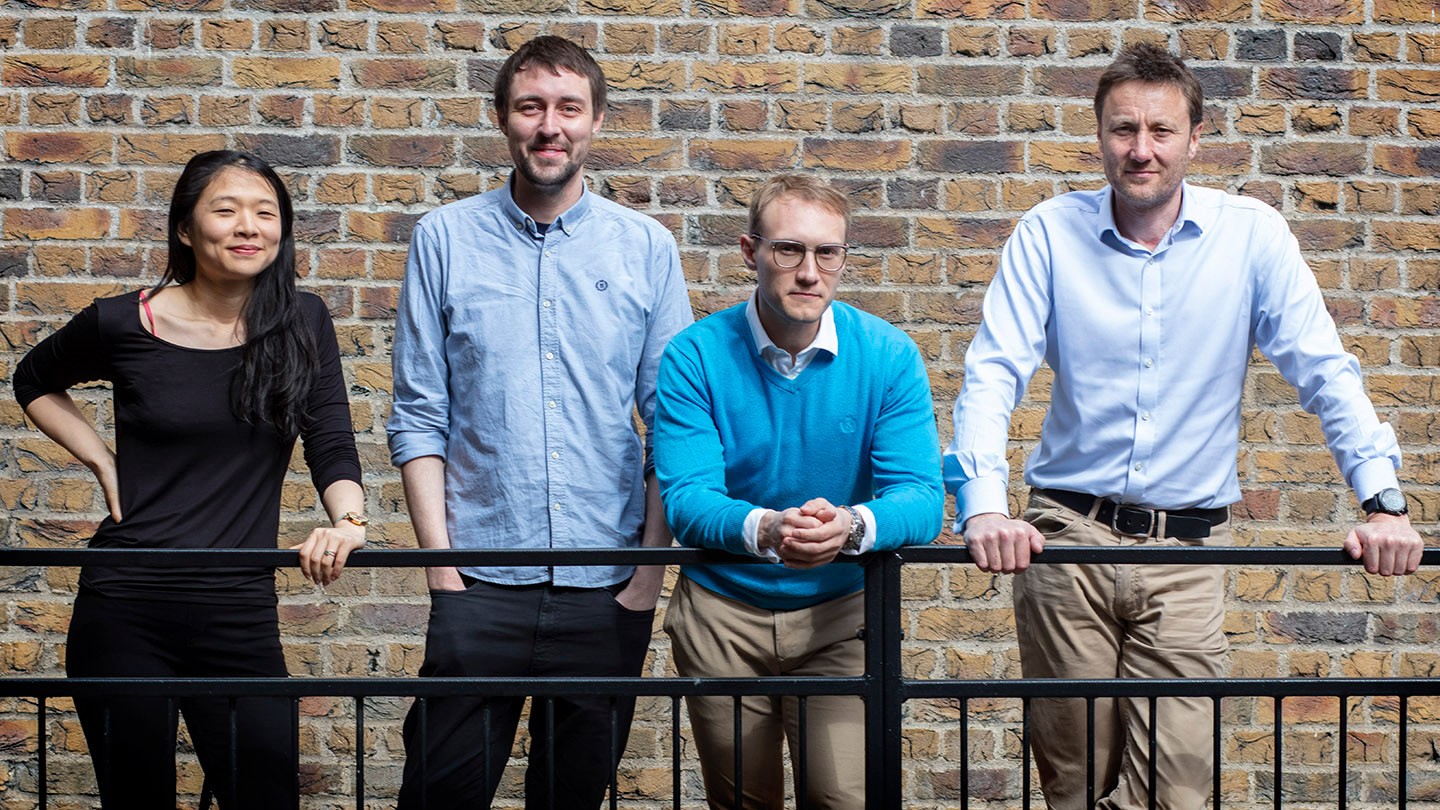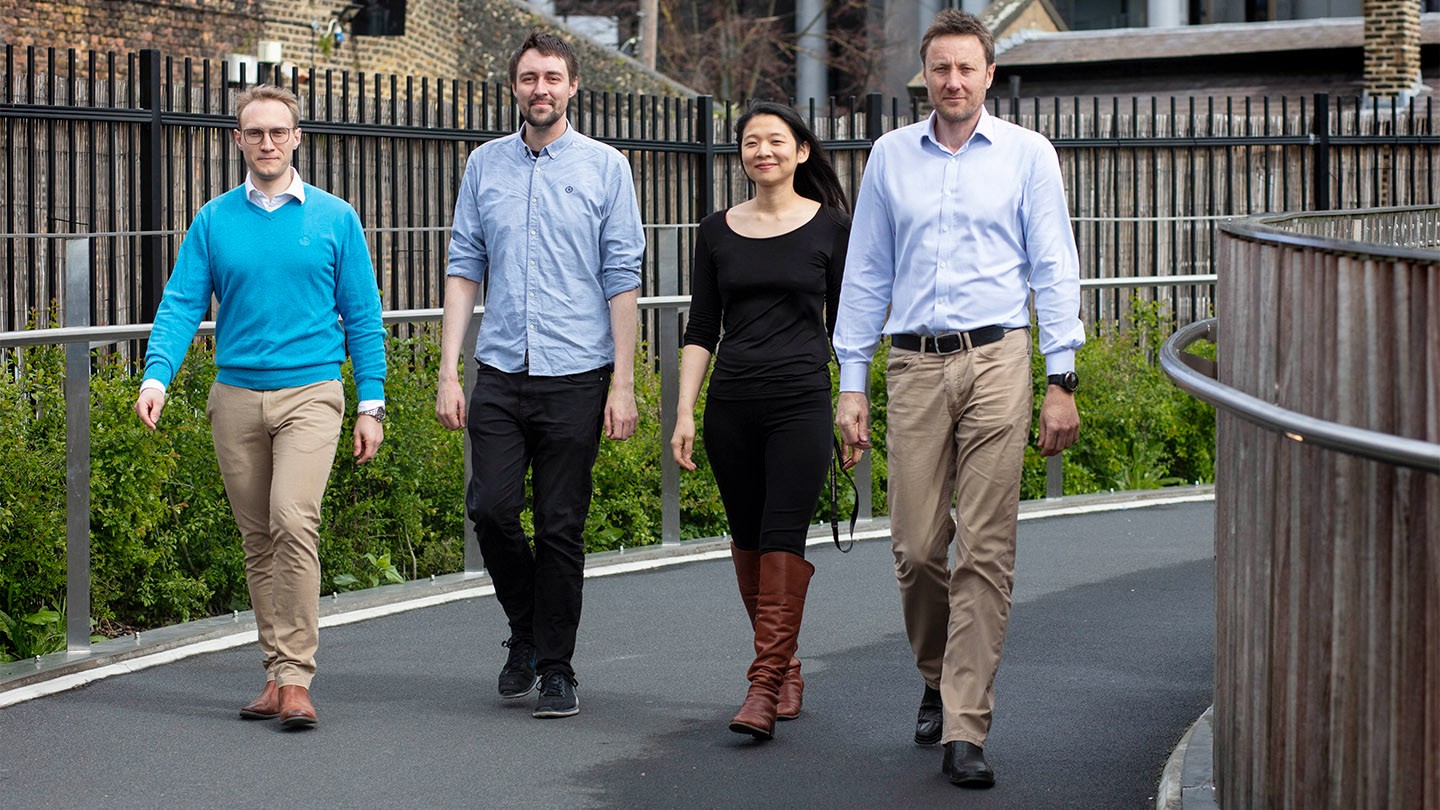
Growth
In Business: solving the world’s hardest chemistry problems with quantum computing
Conception X is a partnership between Barclays and University College London (UCL), through which the bank supports cutting-edge startups founded by Britain’s best and brightest PhD students. We meet the founders of Rahko, which is using quantum computing to achieve customers’ goals.
“We estimate there are fewer than 50 or 60 experts in this field worldwide,” says Miriam Cha, Rahko’s Chief Operating Officer, on the subject of quantum machine learning, “and we have several of them in our team”. Given office space in the University College London is just one of the ways the Rahko team is gaining benefit from the Barclays-sponsored Conception X project, along with funding, advice and contacts from across the bank.
Conception X’s launch cohort, following a successful 2018 pilot programme, features 27 deep tech startups emerging mainly from UCL’s computer science programme. Barclays supports Conception X with funding and through the Eagle Labs network of mentors and investors,
Riam Kanso, CEO of Conception X and Head of Student Entrepreneurship, UCL Engineering, says the partnership offers students life choices they may not have considered before: “PhD students are often encouraged to go into academia or business after graduation but Conception X provides a third path: becoming an entrepreneur.
Our partnership with Barclays will ensure students have the best chance of success. Not only will they have access to research infrastructure and the ability to experiment with riskier technologies as a result of being in an academic environment – they will also be plugged into sources of funding and growth, bringing together the best of both our networks.”

Miriam Cha, Ed Grant, Lee Wossnig and Ian Horobin
It’s through this collaboration, co-founders Leo Wossnig, Chief Executive Officer, and Ed Grant, Chief Science Officer, are transforming their doctoral theses into a cutting-edge business – they use quantum computing and machine learning to solve the world's previously unsolvable problems in chemistry.
“We’re particularly interested in modelling properties of chemicals and materials where using classical computers doesn’t work,” says Grant.
“Some things we’re targeting are catalysts, batteries and pharmaceuticals,” explains Grant. “And rather than just solving academic problems we’re finding out from our customers what their pain points are and ensuring we’re aligned with that, and the research we’re doing is achieving customers’ goals.”
“Leo is an incredible theorist,” Grant says. “My expertise is more on the applied side so we have a great partnership.” It’s an exciting time for the team, which has recently announced a successful £1.3 million seed funding round.
Perfect partners
“Machine learning is now pervasive because of its ability to tackle problems outside of the reach of standard algorithms,” Grant explains. “Quantum computing is a fundamentally different method of computation that relies on quantum physics. Rahko works at the intersection of these two fields and this is allowing us to give our customers powerful new capabilities in chemical simulation.”
The company’s Executive Chairman, Ian Horobin, is an experienced tech entrepreneur who is also one of the directors of Conception X. “At the beginning, I was just asked to meet Ed and Leo to give business advice – knowing nothing about quantum at the first meeting,” Horobin recalls. “But when they explained to me what they were doing it became obvious to me how machine learning ties in with quantum computers to make the best of these devices.
From a chemical point of view, we understand structure, but in modelling to try to find out how to create better molecules you need to be able to model quantum phenomena. To find new efficient ways of getting batteries to work, you need quantum.”
Controlling the qubits
In classical computation, the fundamental units are “bits”, these being zeroes or ones. In quantum computing the units are called “quantum bits” or “qubits”, which could be a zero, a one, or a “superposition” of the two.
Horobin uses the real-world example of the antibiotic penicillin to explain why this is useful. “To model penicillin on a classical device,” he explains, “would take more bits than there are atoms in the universe, and if you can’t model penicillin, how do you fully understand its potential interactions and possibilities? From a quantum device, you need 286 qubits, which is the size of a matchbox.”

The team are using quantum computing to tackle chemistry problems
“Our company name comes from Finnish mythology. Rahko was a god that controlled the phases of the moon. In a similar way we want to control the phases of our qubits,” explains Wossnig.
Rahko started as a project within an academic group at UCL, but the students soon realised that there was a lot of potential for it in a broader context. “We continually integrated our research into our quantum machine learning platform,” says Grant, “over time this has become a powerful tool for rapidly prototyping and testing quantum machine learning models, becoming increasingly like a commercial product.”
The product has particular relevance for agrichemicals. Wossnig says: “You would think that in the 21st century many of the problems around batteries and fertilisers have been solved, in fact what we can do with classical computers is limited and inefficient – development and research times are long, and we can find more efficient solutions with the power of quantum computing.”
Horobin looks forward to a big shift in society driven by quantum computing, and particularly the intersection between quantum computing and machine learning that allows algorithms to constantly improve. Building a business around this, however, needs a special kind of investor who understands the deep tech journey.
Venturing deep
When the team at Rahko joined Conception X, they had not yet developed a workable commercial strategy. They received intensive coaching on how to speak with investors and explore different commercialisation strategies, and connected to a huge network of contacts. On helping to create the next wave of great British companies, Steven Roberts, Managing Director of Barclays UK Ventures, the unit behind Eagle Labs and Conception X, says:
“Deep tech has the potential to transform communities, business and society, but only if talented individuals are given the opportunity to explore the art of the possible. We strongly believe that everyone should have that chance, which is why we partnered with UCL to launch Conception X. This will create the perfect space for the best and brightest students to experiment in fields that will shape the future.”
“We have investors from Conception X, and investors around the programme specifically looking for this kind of very deep tech,” says Miriam Cha. “In our fundraising round, Conception X and Barclays have been very useful in getting us in front of the right people. A lot of investors are curious about quantum technologies and this has been a great, safe environment for them to start asking questions.”
The intensive coaching and networking led to Rahko closing their seed round with lead investor Balderton Capital making a rare seed stage investment.
On the future, Grant is optimistic: “We’re meeting investors who see the potential and really want to be there ready when quantum computers can be used to their fullest capacity.”